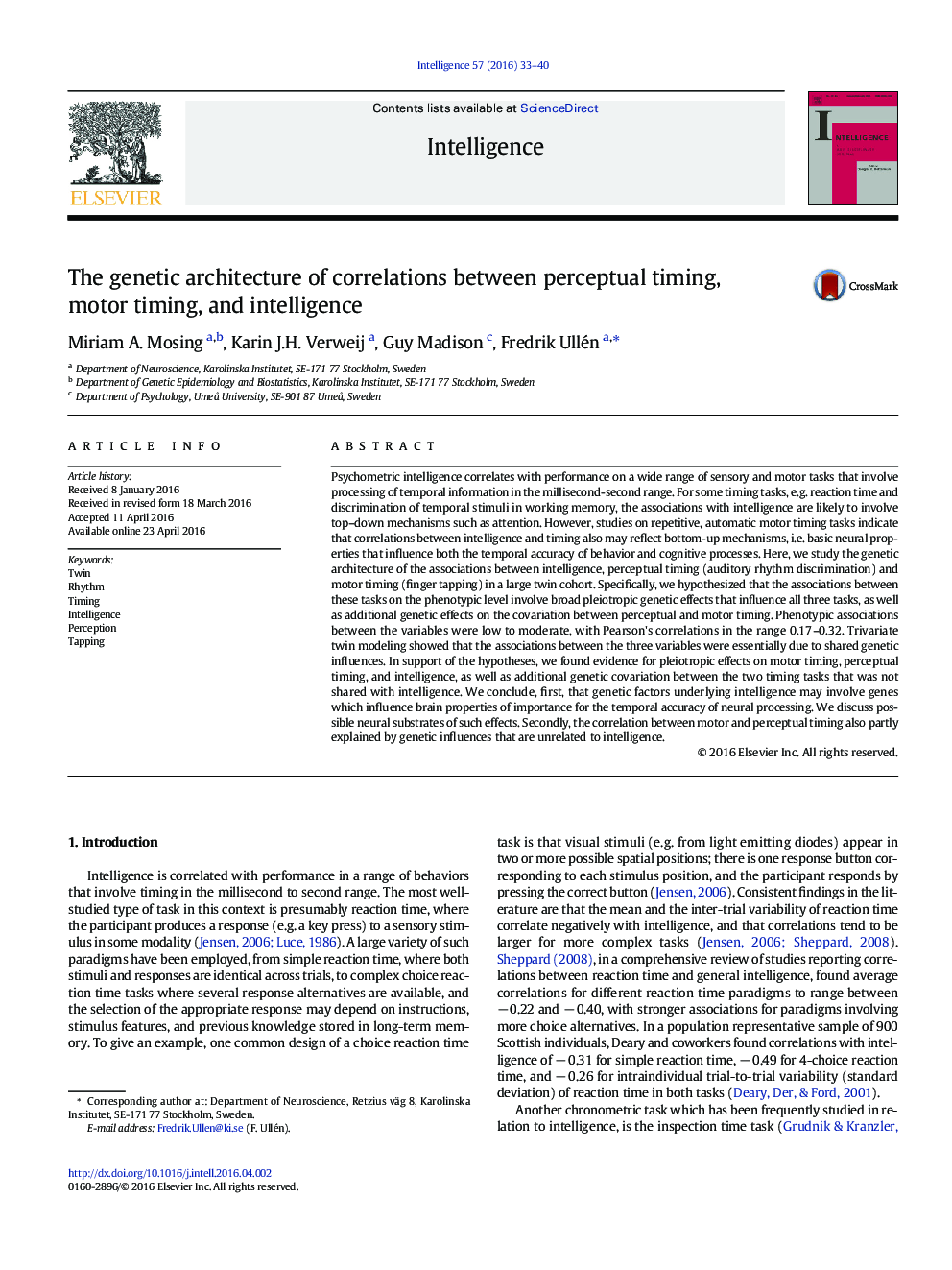| کد مقاله | کد نشریه | سال انتشار | مقاله انگلیسی | نسخه تمام متن |
|---|---|---|---|---|
| 928995 | 1474259 | 2016 | 8 صفحه PDF | دانلود رایگان |
• IQ is associated with timing but the underlying biological mechanisms are unclear.
• Associations between IQ and timing are essentially driven by shared genes.
• Genes not shared with IQ influence associations between perceptual and motor timing.
• Associations with motor timing suggest the involvement of bottom-up mechanisms.
• Genes affecting timing accuracy of neural activity may be involved in intelligence.
Psychometric intelligence correlates with performance on a wide range of sensory and motor tasks that involve processing of temporal information in the millisecond-second range. For some timing tasks, e.g. reaction time and discrimination of temporal stimuli in working memory, the associations with intelligence are likely to involve top–down mechanisms such as attention. However, studies on repetitive, automatic motor timing tasks indicate that correlations between intelligence and timing also may reflect bottom-up mechanisms, i.e. basic neural properties that influence both the temporal accuracy of behavior and cognitive processes. Here, we study the genetic architecture of the associations between intelligence, perceptual timing (auditory rhythm discrimination) and motor timing (finger tapping) in a large twin cohort. Specifically, we hypothesized that the associations between these tasks on the phenotypic level involve broad pleiotropic genetic effects that influence all three tasks, as well as additional genetic effects on the covariation between perceptual and motor timing. Phenotypic associations between the variables were low to moderate, with Pearson's correlations in the range 0.17–0.32. Trivariate twin modeling showed that the associations between the three variables were essentially due to shared genetic influences. In support of the hypotheses, we found evidence for pleiotropic effects on motor timing, perceptual timing, and intelligence, as well as additional genetic covariation between the two timing tasks that was not shared with intelligence. We conclude, first, that genetic factors underlying intelligence may involve genes which influence brain properties of importance for the temporal accuracy of neural processing. We discuss possible neural substrates of such effects. Secondly, the correlation between motor and perceptual timing also partly explained by genetic influences that are unrelated to intelligence.
Journal: Intelligence - Volume 57, July–August 2016, Pages 33–40
